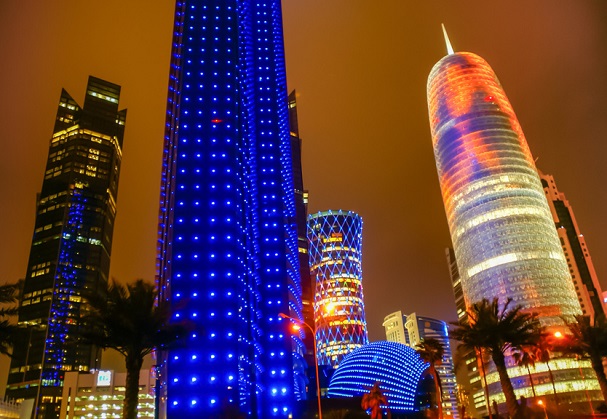
Playing two upfront it has soared up the world rankings
Those who worry that market consolidation ruins competition should take hope from a new report by Mark Giles, Lead Industry Analyst at Ookla, which examined the unique conditions created by Qatar’s 5G World Cup. In preparation for an upcoming football tournament, the FIFA World Cup 2022, Qatar’s telecoms market effectively mutated into a revolutionary new model. Eschewing the traditional European 4-to-3 market formation in the extreme heat of Middle Eastern competition Qatar adopted a bold strategy of relying on two strong players upfront Vodafone Qatar and Ooredoo.
According to Ookla analyst strong competition between these two main operators, when stoked by Qatari state involvement and investment, significantly contributed to the rapid development of the country’s 5G networks. To use the jargon of the sport, the telcos scaled-up like they were on cloud nine. As a result, Qatar is now ranked second in the world for mobile download speeds, according to the latest Globally Indexed Speedtest from Ookla. According to Giles, there were three main factors: hands off regulation, supportive state intervention and 110% commitment from the players. The 5G competition pushed the players to reach levels of coverage they didn’t realise they could achieve, says Ookla’s report.
Vodafone challenged Qatar’s incumbent market leader, Ooredoo Qatar, all the way. The two tackled each other head-on with a commitment to deliver near universal 5G coverage by 2022 and a broad offer of 5G to users across all its tariffs, said the report. Both operators saw the World Cup as their chance to show the world what they can do with 5G networks. This alone has driven median 5G download speeds in the market to over 400 Mbps already.
The referees, the regulators, have played their part in making a 5G tournament success by not making it all about them. The best referees are the ones that nobody notices. “Regulatory decrees have reaped a dividend,” says analyst Giles’s report. “The expansion of 5G networks follows Qatar’s Communications Regulatory Authority (CRA) amending the mobile licenses held by Vodafone Qatar and Ooredoo Qatar in early 2019. This authorised them to use 100 MHz of C-band spectrum, committed them to roll out commercial 5G networks before the end of 2020 in all densely populated areas and required coverage for primary roads, highways and venues associated with the FIFA World Cup. Ooredoo has now achieved 99.5% coverage and Vodafone is on track to achieve universal coverage by the end of 2022.”
The success of the Qatar 5G tournament shows the role that government’s can play at grass roots level. “State intervention lays the seed for competition,” according to Giles’s analysis. In 2018, Vodafone Group sold its stake in its struggling Vodafone Qatar unit to the state-owned Qatar Foundation. This tax-payer funded body performed miracles, transforming a moribund player into a contest winner with a miraculous turnaround strategy. The newly confident player grew in stature with expanding revenues which attracted investment scouts eager to take a punt on Vodafone’s 5G network in Qatar.
The result is that Vodafone has been aggressively densifying its 5G network with over 50% more radio access network sites deployed since 2017. In Q1 2022 Vodafone’s mobile connections base topped 2 million for the first time, representing 18.6% growth year-on-year, well above Ooredoo’s 6.8% growth, concludes the report. Healthy competition can be created between two players, when all the eyes of the world are on them.


